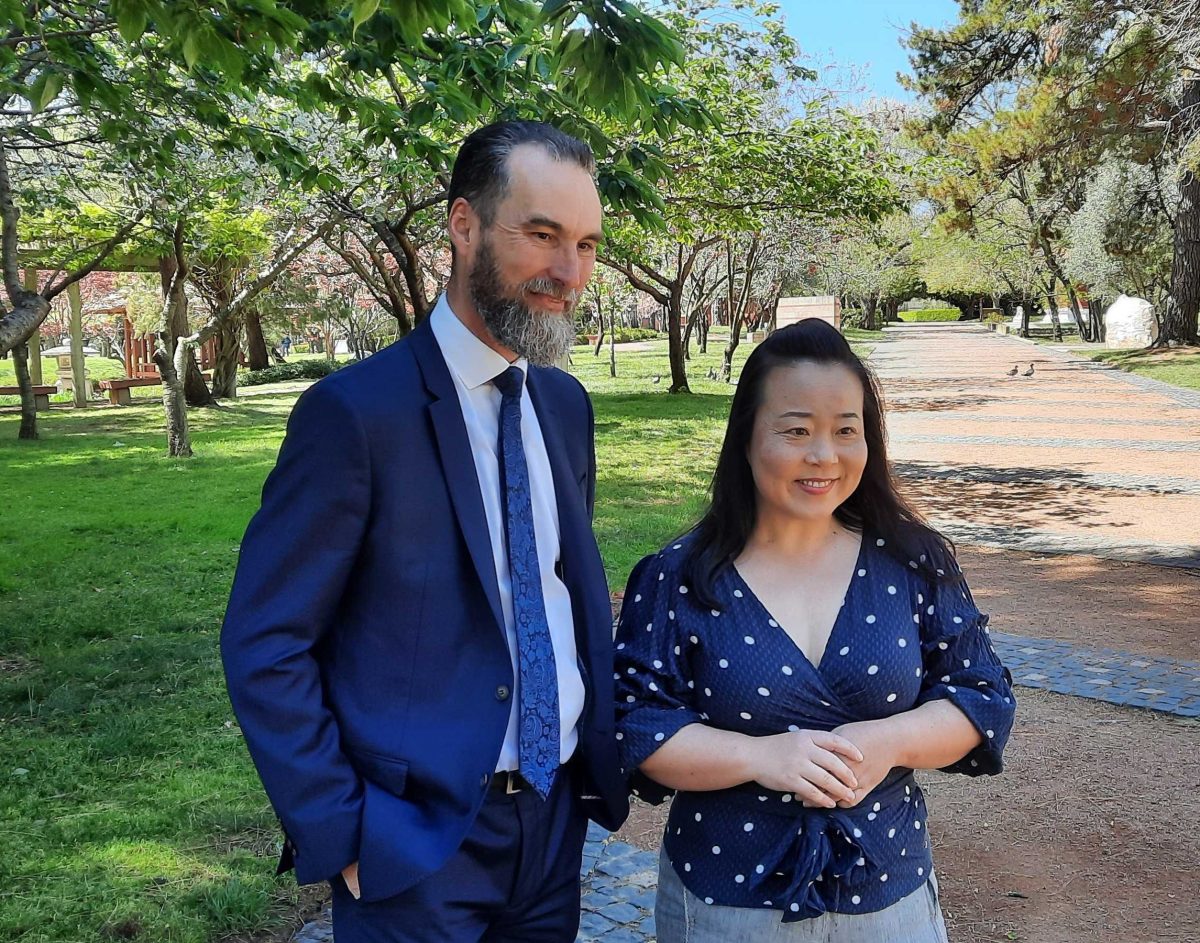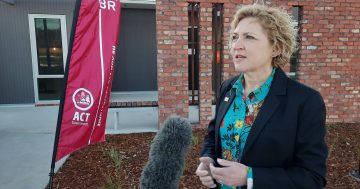
Canberra Liberals Mental Health spokesperson Ed Cocks with Leader Elizabeth Lee: mental health system needs fundamental reform. Photo: Ian Bushnell.
The Canberra Liberals have unveiled a $40 million mental health reform package designed to restore confidence in a system they say has been wracked with scandal and crisis.
The package includes a $10 million boost to frontline mental health service delivery; up to 7000 additional psychology, counselling and behavioural services for ACT school children; a $10 million mental health workforce fund for organisations to attract, train and retain their workers; and a $20 million investment in mental health community housing.
The Canberra Liberals will also embed a no-wrong-door approach in Canberra’s health and mental health system so no one in need is turned away, and better connect mental health services and providers.
They will also provide mental health support for health and emergency services workers, and trial a dedicated psychiatric support for the ACT Watch House.
GPs treating patients with mental health concerns will have an advice support line to seek help, and the ACT’s first suicide prevention legislation will be introduced to enshrine a whole-of-government approach to help prevent suicide.
Opposition Leader Elizabeth Lee said these were all very tangible steps to ensure that Canberrans get the mental health system they deserve.
Mental Health spokesperson Ed Cocks said there was a growing demand for services across the ACT that was not being met, and the system had too many gaps and cracks for people to fall through.
“The approach that Labor has taken and the Greens have taken to mental health over the past decade or more has been more BandAids and more short-term announceables at the expense of that genuine reform which will deliver the long-term outcomes Canberra needs,” he said.
Mr Cocks said the reforms would build the workforce and services Canberra needed.
“We’re looking to design evidence-based approaches that actually bring the workforce we need from interstate but also build up the workforce that we have here so that they are best equipped to serve the needs that Canberra has,” he said.
Mr Cocks could not say how many psychologists or counsellors 7000 services for schoolchildren would represent but said the funding would follow the child wherever the child went, wherever they needed to get to in order to get the services they needed.
He said the housing commitment would focus on flexible responses to individual needs, providing housing and support for people with mental health issues across the spectrum.
The $20 million commitment includes both building and managing properties and would include group houses.
“There has been an absolute barrier to people being able to get into appropriate housing when they’re facing real mental health issues,” Mr Cocks said.
“We want to make sure we are designing strong programs that keep people out of acute mental health treatments and providing the supports they need when they come out as well.”
Mr Cocks said the no-wrong-door approach would ensure that no matter where someone went, such as a GP or emergency department, they could be connected to the help they needed.
“Too many people find that when they reach out for support, they can’t get the support they need straight away, or they’re forced to tell their mental health story over and over and over again,” he said.
“I hear too many stories from people who’ve been impacted, the families of people who have reached out for support and either not received it quick enough or been shuffled off to another service.”





















